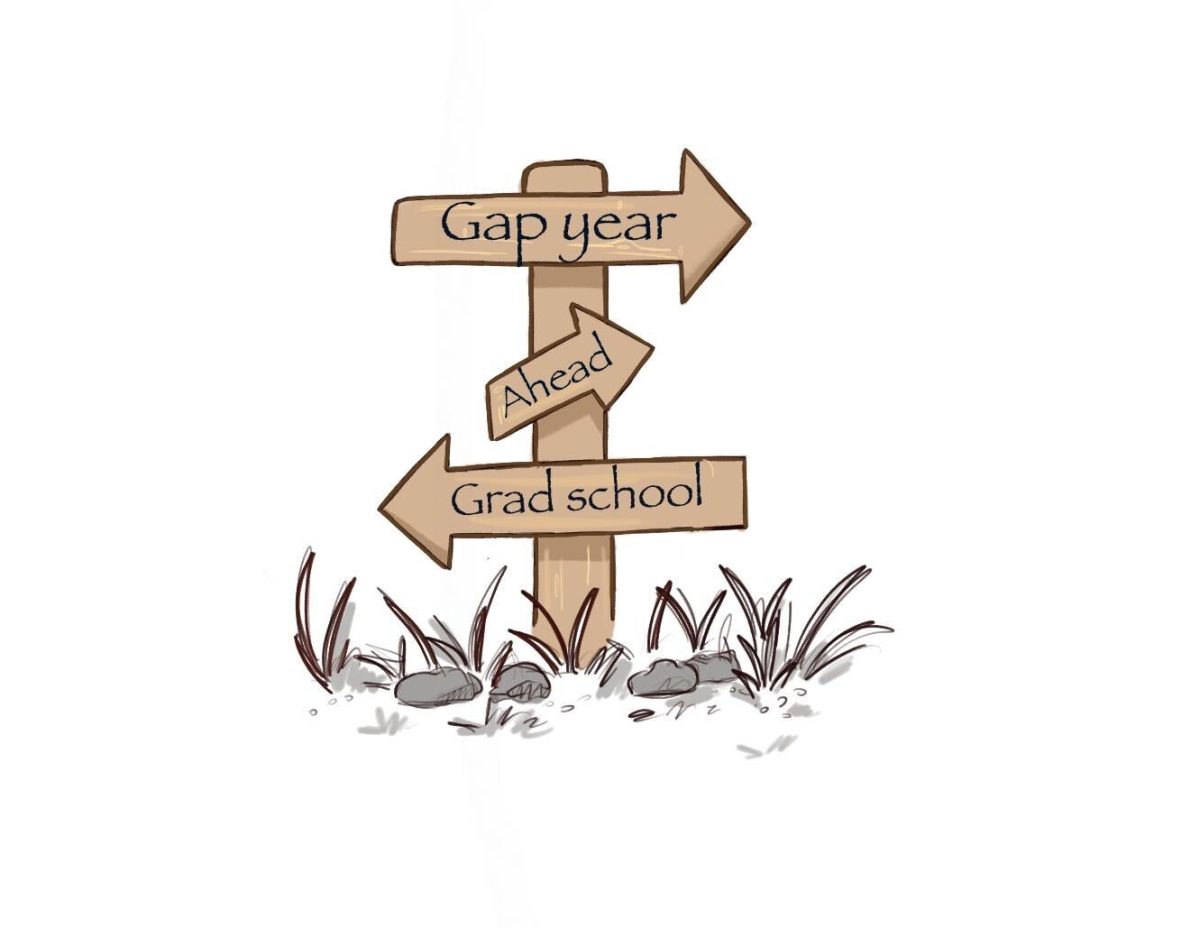Fun fact: I often like to pretend I’m in a simulation.
And not in a philosophical way, but in a rather “maybe let’s create psychological distance from all these overwhelming emotions so that I don’t crumble” kind of way. I have discovered this to be a viable coping mechanism wherein I momentarily frame stressful emotions from societal pressures as a part of some larger narrative, and it truly helps me develop perspective.
However, the aforementioned larger narrative is something that isn’t really that far fetched. After all, it’s the one in which you and I continue to reshape patterns formed throughout history. Pedagogical frameworks from Mesopotamia, medieval universities in Italy, marriage and familia in Rome, state pensions from Germany, parental frameworks via Confucian China and myriad other carefully-constructed outlines around every crevice of the globe. All of that was yesterday.
And today? Kindergarten at the age of six, college at 18, employment at 22 (my fellow aspiring doctors are an anomaly, of course), white-picket-fence at 26, kids by 30, botox by 40, travel the world by 50, retirement by 60, old-age-home by 75 and tombstone by the ripe age of 100.
Ironically enough, and maybe I did get philosophical, my point is that our society runs on this innate structure of what is considered “traditional” and proven to be “successful.” And so naturally, when my recently-graduated brother informed me that his best friend steered from the “expected” path to take the notorious gap year … (the ellipses emphasize the breath my immigrant parents would take to grasp this wild concept), I found myself stunned and skeptical all at once.
By definition, a gap year refers to taking a break between graduating college and committing to the workforce or any further means of education. Unsurprisingly, this term is tagged with a negative connotation, and it took me quite some time to realize that sometimes one needs to step away to step forward. Despite my past beliefs, if anything, a gap year is simply a state of mind we are unable to achieve while multitasking through life.
In light of this, let me shoot some noteworthy facts at you.
According to a survey by College Finance, 78% of students who took a gap year revealed they gained clarity in terms of their future goals. My subsequent takeaway is that gap years are in fact an efficient use of time.
Secondly, more than a fifth of the surveyed hiring managers expressed that they were more likely to hire an individual who has taken a gap year. From this data, one can infer that those who do matter to your growth will know the value of a gap year and the courage such a step takes. Additionally, they must have debunked their preconceptions by noticing patterns in the job market.
Finally, gap years are a concept of the 17th-century “Grand Tour,” where the sons of aristocrats traveled the length of Europe to enhance their personal growth. Thus we can all agree that a gap year done with intention was once a rite of passage; make of that what you will.
However, I do want to note that I have always been a massive advocate for education and personal growth. I love to learn and I’m in love with positive transformation. Consequently, I strongly believe if one is to take a gap year as a lazy excuse to sleep on Mom’s couch, their parents are indeed justified in being hesitant when their child tenderly drops the bomb.
To truly benefit from a gap year, as a first step, you need to develop a plan. After all, a gap year is not a gap. In reality, while the job industry is perhaps structured to be a money-pumping machine, it’s also a money-sucking monstrosity, and it’s a little too easy to trip into the latter simulation.
Personally, I would advise you to put pen to paper and think out loud. Plan out your finances; plan out your hobbies; plan out your fiction to-be-read; plan out your much-deserved mental health break; plan out your exercise routine; plan out your backpacking trip; plan out your study schedule for that ridiculous entrance exam.
At the end of the day, taking a gap year before graduate school “just because” is not a respectable choice — instead, create personalized goals and reasonable discipline.
For example, if I wanted to launch a startup and create a video game, I would ask: Do I have a unique game idea? Do I have a team? Can I work from home to save on rent and flip burgers on the side to fund my meal prep?
Be realistic, but make it fun. Gap years are a high-risk, high-yield situation, so determine your priorities: Do I want to save enough money to drive a Vespa across Europe or take a data science bootcamp to hone my critical thinking?
Also, while we are at it, do yourself a favor and step away from another structure that runs society: the Google calendar. Understandably, a daunting aspect of a gap year is the name itself — 12 entire months? However, you can solve this by tailoring your own timeline and perhaps take four months “off” instead to pursue a change in dynamic for yourself.
Upon reflection, one realizes that our entire lives are intrinsically linked to education and eventually employment, and personally, that sounds like a precursor for a dystopian society. Consequently, my personal motto has developed into “experience over expectation.”
Going forward, in terms of tangible ways to become a certified gapper, don’t be afraid to tap on hyperlinks you see on social media. Recently, I have discovered so many overseas service opportunities where one can travel abroad, but at a fraction of the cost. My golden advice: network. Network and build your connections to make the most of the resources you already have.
Additionally, if you’re like me and are still seeking out a more structured experience, programs like Semester at Sea exist to help you stretch out of your comfort zone while knowing that a safety net exists. It is a wonderful way to simultaneously engage yourself culturally and build a fantastic resume.
Finally, as someone who has delved into the possibility of attending medical school, I find that taking a gap year is often encouraged and an unofficial prerequisite in a doctor’s timeline. However, understand where you fall on a gap year spectrum. Will you be investing in vigorous MCAT study sessions or instead finance laid-back coffee shop hoppings to clear the ashes of your burnout?
At the end of the day, for all we know, maybe gap years will eventually turn into the norm. Both British royalty and a major fraction of Hollywood have already hopped on the tracks, so maybe it’s already trendy. But whether it’s within the structure or beyond the simulation, make a choice that speaks to your personalized goals and self-evaluated philosophy.
Shivani Tripurani is a second-year behavioral neuroscience and data science combined major. She can be reached at tripurani.s@northeastern.edu.
The Huntington News is dedicated to serving the Northeastern University community with original, professional reporting and creating an environment in which student journalists can learn from one another. Support an independent, free press at Northeastern University with your donation today.
















